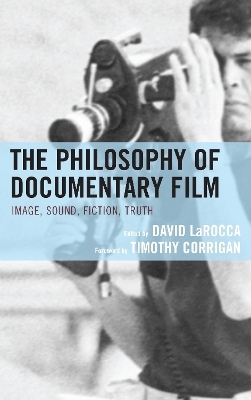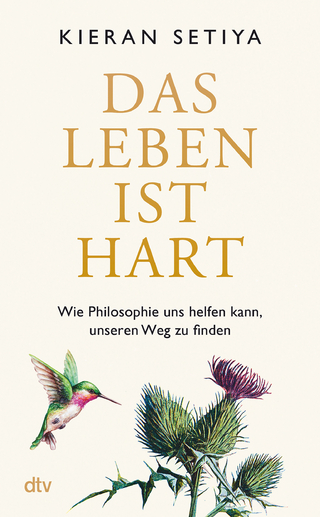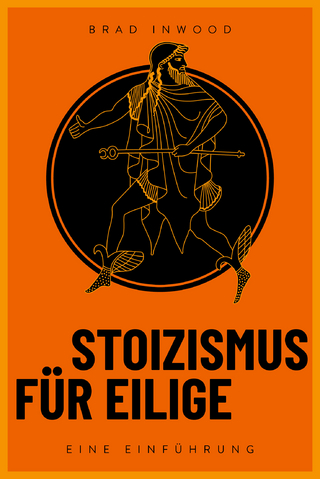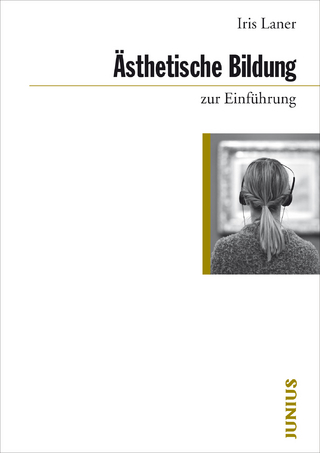
The Philosophy of Documentary Film
Lexington Books (Verlag)
978-1-4985-0453-9 (ISBN)
This book will be of interest to theorists and practitioners of nonfiction film; to emerging and established scholars contributing to the secondary literature; and to those who are intrigued by the kinds of questions and claims that seem native to nonfiction film, and who may wish to explore some critical responses to them written in engaging language.
David LaRocca is visiting assistant professor in the Department of Philosophy at the State University of New York College at Cortland.
At the Center of Our Age
Representative Qualities and Questions of Documentary Film
What Photography Calls Thinking: Theoretical Considerations on the Power of the
Photographic Basis of Cinema
Cinematic Representation and Spatial Realism: Reflections After/Upon André Bazin
Chapter 3: Documentary Traces: Film and the Content of Photographs
The Limits of Appropriation: Subjectivist Accounts of the Fiction/Nonfiction
Distinction
Inscribing Ethical Space: Ten Propositions on Death and Documentary
Before Documentary: Early Nonfiction Films and the “View” Aesthetic
Ruminating on the Ideologies of Nature Film
Jean Rouch’s Cine-trance and Modes of Experimental Ethnofiction Filmmaking
The Ecstasy of Time Travel in Werner Herzog’s Cave of Forgotten Dreams
Habitats of Documentary: Landscapes, Color Fields, and Ecologies in the
Avant-Docs of Vincent Grenier
Promises and Contracts Found in the Archive Are Not About the Past:
Renewing Civil Alliances—Palestine 1947–48
“See and Remember”: The Golden Days of Said Otruk
Intimacy, Modesty, Silence: Documentary Filmmaking in the Face of Trauma
Provoking the Truth: Applying the Method of Cinéma Vérité
Reenvisioning Dziga Vertov: 10 Enduring Diktats for Documentary Cinema
Whose Strife is it Anyway? The Erosion of Agency in the Cinematic Production of
Kitchen Sink Realism
Redefining Documentary Materialism: from Actuality to Virtuality in Victor Erice’s
Four and a Half Film Fallacies
The Dogma 95 Manifesto and The Vow of Chastity
Minnesota Declaration: Truth and Fact in Documentary Cinema
Omission and Oversight in Close Reading—The Final Moments of Frederick
Wiseman’s High School
Cinematic Consciousness: Animal Subjectivity, Activist Rhetoric, and the Problem
of Other Minds in Blackfish
Understanding (and) the Legacy of the Trace: Reflections After Carroll, Currie, and
Plantinga
: Adam McKay’s Vehicle for Truth Claims
Letter to Errol Morris: Feelings of Revulsion and the Limits of Academic Discourse
“You are Never Alone”: On Douglas Gordon and Philippe Parreno’s Zidane:
On Patience (After Sebald): Documentary as a True Portrait of Sensibility
Fiction and Nonfiction in Chantal Akerman’s Films
Vérité Fiction, Dramatized Documentary: On Michelle Citron’s Aesthetic Provocations
“Deceiving into the Truth”: The Indirect Cinema of Stories We Tell and
A Reality Rescinded: The Transformative Effects of Fraud in I’m Still Here
David LaRocca
| Erscheinungsdatum | 08.01.2019 |
|---|---|
| Reihe/Serie | The Philosophy of Popular Culture |
| Co-Autor | Diana Allan, Rick Altman, Ariella Azoulay |
| Vorwort | Timothy Corrigan |
| Verlagsort | Lanham, MD |
| Sprache | englisch |
| Maße | 152 x 222 mm |
| Gewicht | 998 g |
| Themenwelt | Geisteswissenschaften ► Philosophie |
| Geisteswissenschaften ► Religion / Theologie | |
| ISBN-10 | 1-4985-0453-1 / 1498504531 |
| ISBN-13 | 978-1-4985-0453-9 / 9781498504539 |
| Zustand | Neuware |
| Haben Sie eine Frage zum Produkt? |
aus dem Bereich


